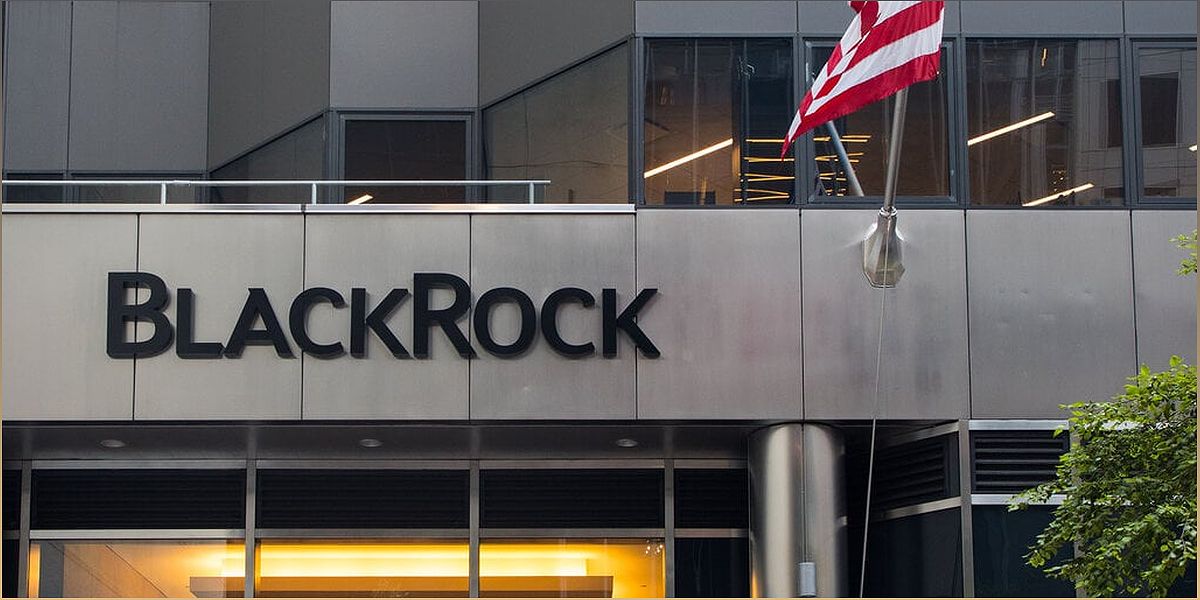In a groundbreaking development, BlackRock, the world's largest fund manager, has received funding for its Bitcoin exchange-traded fund (ETF). This move has sent shockwaves through the financial world, as it signifies a significant shift in traditional investors' appetite for cryptocurrency exposure. In this article, we will explore the implications of BlackRock's funding and its potential to revolutionize the investment landscape. Join us as we delve into the exciting possibilities that lie ahead.
BlackRock's Bitcoin ETF Funding: A Game Changer for Traditional Investors
BlackRock, the world's largest fund manager, has received significant funding for its Bitcoin exchange-traded fund (ETF), marking a monumental shift in the traditional investment landscape. This development has caught the attention of both cryptocurrency enthusiasts and traditional investors alike, as it opens up new opportunities for exposure to the digital asset.
With BlackRock's reputation and expertise, this funding signals a growing acceptance of cryptocurrencies in the mainstream financial industry. Traditional investors who were previously hesitant to enter the crypto market now have a trusted avenue to explore the potential benefits of Bitcoin.
As the first major Wall Street firm to pursue a Bitcoin ETF, BlackRock's move has the potential to pave the way for other institutional investors to follow suit. This funding marks a significant milestone in the journey towards widespread adoption of cryptocurrencies in traditional investment portfolios.
The Implications of BlackRock's Bitcoin ETF Funding
BlackRock's funding for a Bitcoin ETF has far-reaching implications for the investment community. Firstly, it provides a regulated and trusted platform for investors to gain exposure to Bitcoin without directly owning the digital asset. This removes some of the barriers that previously deterred traditional investors from entering the crypto market.
Secondly, the approval of a Bitcoin ETF by the U.S. Securities and Exchange Commission (SEC) would signify a significant shift in the regulatory stance towards cryptocurrencies. It could potentially open the floodgates for more institutional investors to enter the market, driving further adoption and potentially increasing the value of Bitcoin.
Lastly, BlackRock's move could also influence other asset managers and financial institutions to explore cryptocurrency offerings. If successful, this could lead to a broader range of investment products and services related to digital assets, creating a more robust and diversified investment landscape.
The Road to Regulatory Approval: SEC's Review Process
The U.S. Securities and Exchange Commission (SEC) plays a crucial role in the approval process for a Bitcoin ETF. The SEC carefully evaluates each application, considering factors such as market manipulation risks, investor protection, and regulatory compliance.
While the SEC has previously denied applications for Bitcoin ETFs, BlackRock's reputation and influence in the financial industry may give its application a higher chance of success. Analysts speculate that a spot Bitcoin ETF could be approved for trading as early as January, signaling a significant milestone for the cryptocurrency market.
However, it's important to note that the SEC's decision is ultimately based on thorough analysis and consideration of various factors. Investors and enthusiasts eagerly await the regulatory verdict, which could shape the future of Bitcoin and its integration into traditional investment portfolios.
Bitcoin ETF: Unlocking New Opportunities for Investors
A Bitcoin ETF offers several advantages for investors seeking exposure to the digital asset. Firstly, it provides a convenient and regulated way to invest in Bitcoin without the complexities of owning and storing the cryptocurrency directly. This eliminates concerns about security and custody.
Secondly, a Bitcoin ETF allows for easier diversification within an investment portfolio. Investors can allocate a portion of their funds to Bitcoin, potentially benefiting from its growth while still maintaining a balanced and diversified portfolio.
Furthermore, a Bitcoin ETF could attract a new wave of institutional investors who were previously hesitant to enter the crypto market. This increased participation from traditional investors could contribute to the maturation and stability of the cryptocurrency market as a whole.


